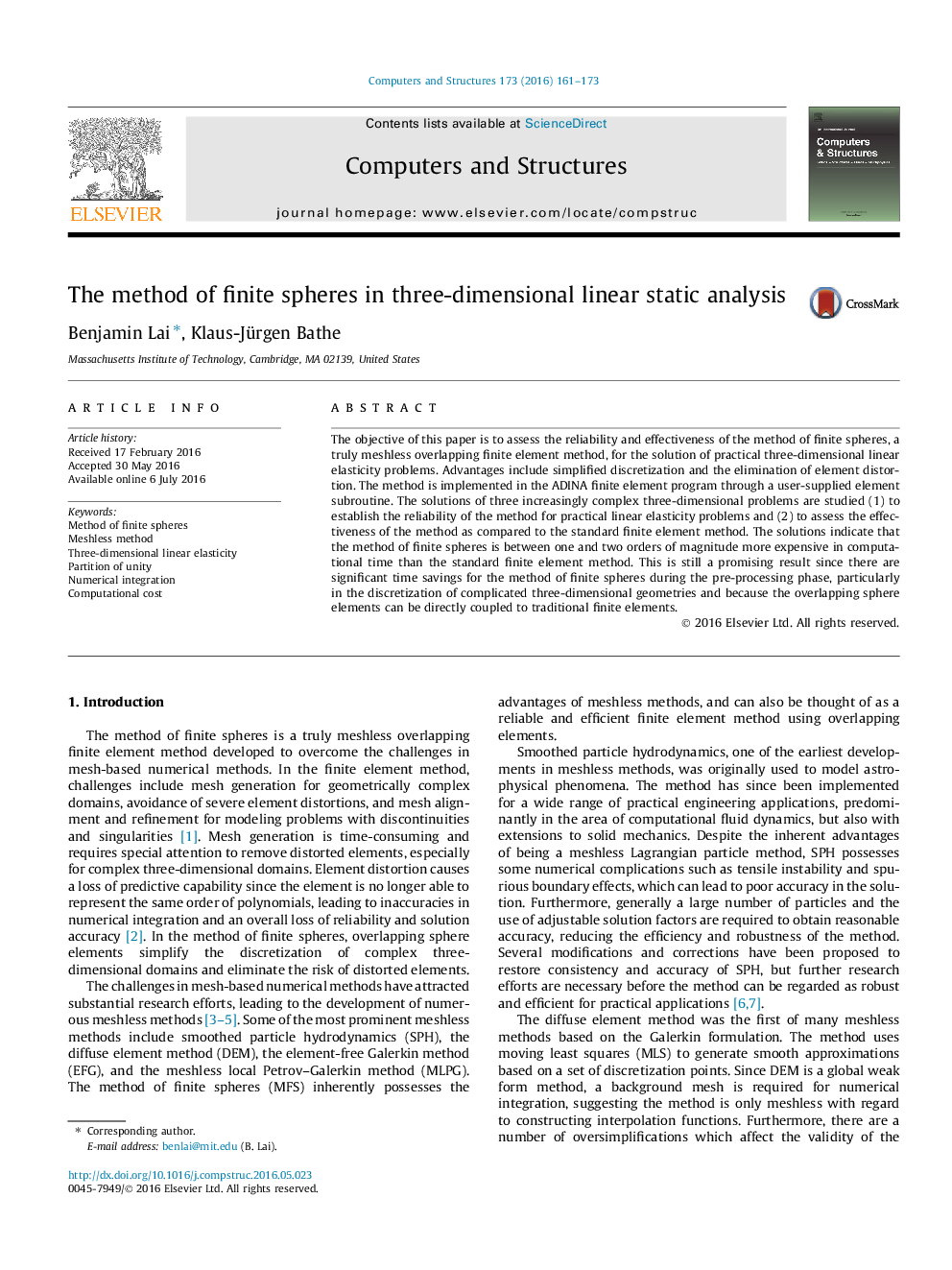| کد مقاله | کد نشریه | سال انتشار | مقاله انگلیسی | نسخه تمام متن |
|---|---|---|---|---|
| 509881 | 865720 | 2016 | 13 صفحه PDF | دانلود رایگان |
• The method of finite spheres is developed for the analysis of 3D static linear elasticity problems.
• A piecewise Gauss–Legendre quadrature rule for 3D integration domains is proposed.
• The method is implemented in the user routine of the commercial finite element program ADINA.
• The reliability and efficiency of the method are compared to the standard FEM.
The objective of this paper is to assess the reliability and effectiveness of the method of finite spheres, a truly meshless overlapping finite element method, for the solution of practical three-dimensional linear elasticity problems. Advantages include simplified discretization and the elimination of element distortion. The method is implemented in the ADINA finite element program through a user-supplied element subroutine. The solutions of three increasingly complex three-dimensional problems are studied (1) to establish the reliability of the method for practical linear elasticity problems and (2) to assess the effectiveness of the method as compared to the standard finite element method. The solutions indicate that the method of finite spheres is between one and two orders of magnitude more expensive in computational time than the standard finite element method. This is still a promising result since there are significant time savings for the method of finite spheres during the pre-processing phase, particularly in the discretization of complicated three-dimensional geometries and because the overlapping sphere elements can be directly coupled to traditional finite elements.
Journal: Computers & Structures - Volume 173, September 2016, Pages 161–173
